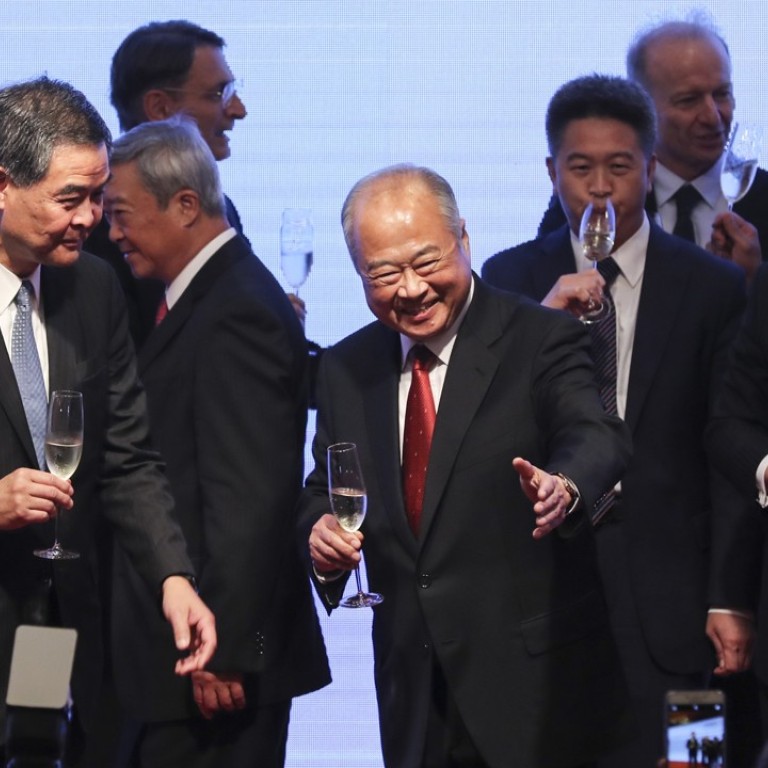
Hong Kong bourse to launch consultations on third board
Move part of efforts to attract more tech and emerging companies
Hong Kong’s stock exchange will launch consultations on Friday for establishing a so-called “third board” that could allow companies with dual-class share structures to list and for reforming the Growth Enterprise Board for smaller growth companies, the bourse’s chief executive, Charles Li Xiaojia, said on Monday.
The move has been regarded as part of the exchange’s efforts to woo more technology and emerging companies amid growing competition for initial public offerings among global markets.
Speaking at the 17th anniversary reception of Hong Kong Exchanges and Clearing, Li said the exchange hoped to attract more new economy listings and improve the quality of companies listing in the city so that Hong Kong could become “highly competitive” among global markets.
The new board will be the third market in Hong Kong, after the main board and GEM.
Dual-class stock structures are designed to give specific shareholders more voting power than others. Shares in one class carry one vote, while shares in another carry multiple votes.
Several stock markets allow such structures, including the New York Stock Exchange and Nasdaq Stock Market.
The HKEX proposed in 2015 to allow dual-class shareholding companies to list in Hong Kong, but the Securities and Futures Commission rejected the proposal. Nonetheless, the commission said it supported public discussions of the new plan.
In February, Singapore’s stock exchange started a public consultation on introducing a dual-class share structure.
Li previously said the new board would have different listing rules from the other two markets to allow more foreign companies, infrastructure firms, start-ups, overseas companies on the “Belt and Road Initiative”, and those that wanted to be listed in a dual-class shareholding structure, to go public.
In 2014, Chinese e-commerce giant Alibaba Group Holding opted to list in New York as its corporate governance structure was refused in Hong Kong. It triggered a hot debate in Hong Kong on dual-class shares and how to balance the interests of founding shareholders and executives with investors’.
Alibaba chairman Jack Ma Yun has called Hong Kong listing rules outdated, that they do not meet the needs of new economy companies. Alibaba owns the South China Morning Post.
On Monday, Li said the Bond Connect, a scheme introduced by the Chinese government to allow investors from mainland China and overseas market direct access to each other’s debt market, was “in the final stage of preparation”.
“The launch date of the Bond Connect is up to the regulators, including the People’s Bank of China and Hong Kong Monetary Authority, to decide,” he said.
Additional reporting by Enoch Yiu

